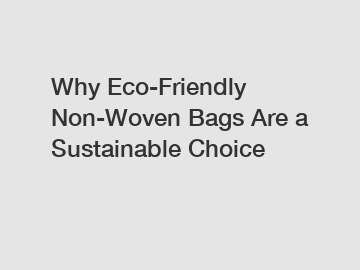Key Factors to Consider When Choosing Sustainable Packaging Solutions
When choosing sustainable packaging solutions, the key factors to consider are materials, recyclability, supplier practices, and the impact on the entire supply chain. These factors play a critical role in ensuring that the chosen packaging is not only environmentally friendly but also practical and effective.
Understanding Sustainable Materials
The first aspect to explore is the type of materials used in packaging. Sustainable packaging often involves the use of biodegradable, compostable, or recycled materials. For instance, packaging made from plant-based plastics or recycled paper can significantly reduce environmental footprints. Companies need to assess the lifecycle of the materials, ensuring they are sourced responsibly and have minimal environmental impact during production.
Evaluating Recyclability
Another essential consideration is the recyclability of the packaging. Consumers are increasingly aware of the importance of recycling, and packaging that can be easily recycled contributes to a circular economy. Businesses must find out how easy it is for the end-user to recycle the packaging, and provide clear instructions on how to do so. Engaging with consumers around recycling can also enhance brand loyalty and reputation.
Supplier Practices
The practices of suppliers should not be overlooked. Companies should seek out suppliers who demonstrate a commitment to sustainability through ethical sourcing, reduced carbon footprints, and transparent supply chains. By aligning with suppliers who share similar sustainability values, businesses can strengthen their own sustainability efforts and enhance their overall impact.
Additional resources:How Does Sustainable Packaging Solutions Custom Work?
Assessing Supply Chain Impact
Packaging & Printing
Is microwaving greaseproof paper safe for food?
How Foldable Polyester Bags Revolutionize Sustainable Shopping?
Top Shoulder Bag Trends You Can't Miss in 2023
How to Choose the Perfect ODM OPP Bag for Storing Mayonnaise Jars?
What Are the Benefits of Plastic Woven Bags?
Lastly, the packaging’s impact on the entire supply chain is crucial. Sustainable packaging should not only benefit the environment but also be cost-effective and practical for transportation and storage. Reducing packaging size and weight can lead to lower transportation costs and decrease greenhouse gas emissions related to distribution. A thorough understanding of how packaging interacts with logistical processes can lead to more informed decisions that benefit both the business and the planet.
Conclusion: The Bigger Picture
Ultimately, choosing sustainable packaging solutions requires a holistic approach that takes into account materials, recyclability, supplier practices, and supply chain efficiency. Making informed choices can lead to significant environmental benefits, enhance brand loyalty, and meet the growing consumer demand for responsible practices. As sustainability becomes more integral to business models, the move towards sustainable packaging is not just a trend but a crucial component of long-term viability and success in a competitive marketplace.
Are you interested in learning more about Transparent Metallized PET Film Custom, Metalized Polyester Film Manufacturer, antistatic film supplier? Contact us today to secure an expert consultation!
Additional resources:ODM OPP Bags vs Traditional Packaging: Which is Better for Canned Meats?
What are the key benefits of using PP fabric bags?
Top Benefits of OPP Bags for Yogurt Packaging
How to Choose the Best Rpet Shopping Bag?
Top ODM OPP Bag for Packaging Vinegar Bottles in 2024
Are Laminated Foil Bags Safe for Food Storage?
Eco-Friendly Shipping: Biodegradable Recycled Custom Courier Mailing Bags









